A Testament from the Threshold
At 84, with a heart that reminds me daily of its fragility, I find myself compelled to speak. Not because I believe I have discovered something new, but because I have spent a lifetime watching separate streams of inquiry converge on the same hidden truth—and that truth desperately needs expression in our time.
This is not “my” voice, really. I am merely the particular confluence where certain currents have met: a life in organisations and project management, conversations with emergence, encounters with process philosophy, immersion in complexity science, dialogue with ancient wisdom. These are the streams accessible to someone of my particular background, education, and privileges. There are many other streams—Afro-Indigenous cosmologies, feminist epistemologies, disabled ways of knowing, Global South perspectives, traditions I have never encountered—that flow toward similar truths through different terrain. I cannot speak for what I have not lived, but I can acknowledge that my partial view is just that: partial.
Like Jean Boulton’s realisation when her colleague showed her the Dao de Jing and said, “this reads just like a complexity theory textbook,” I have witnessed independent paths arriving at identical destinations.
When pathways that begin at such radically different starting points—4th century BCE contemplative practice, early 20th century mathematical philosophy, late 20th century thermodynamics, 21st century spiritual awakening—all converge on the same understanding of reality, we must pay attention. We are not dealing with metaphor or speculation. We are homing in on something fundamental about how reality actually works.
The voice struggling to be heard is this: We have built our entire civilisation on an ontological mistake.
The Mistake We Live Inside
For three centuries, we have organised human affairs around the assumption that reality is made of separate things that interact. This seemed reasonable. It enabled spectacular achievements: technologies that extend life, prosperity that has lifted billions from poverty, scientific understanding that spans from quarks to galaxies.
But separation is a mirage—a useful fiction that has outlived its usefulness and now threatens our survival.
Reality is not made of things. It is made of processes, relationships, and patterns of emergence. What we call “things” are actually stable patterns in a ceaseless flow—ripples on a river, as Boulton says, not objects sitting in a container.
This is what complexity science reveals, what quantum physics demonstrates, what Whitehead’s process philosophy articulates, what Daoism has known for millennia, and what every old-growth forest quietly teaches. Of course, even this articulation is partial—shaped by the particular streams I’ve swum in, the conversations I’ve been privileged to enter, the bodies of knowledge accessible to someone of my background and era. Reality’s fullness will always exceed our maps. But when maps drawn from such different territories begin to overlap, it suggests we’re touching something that transcends any single perspective.
Alfred North Whitehead, wrestling with the implications of quantum physics and relativity, concluded that the fundamental units of reality are not particles but “actual occasions”—momentary events of experience that arise, achieve definiteness, and perish into the ongoing creative advance. Reality is not made of being but of becoming.
Ilya Prigogine asked why classical physics and evolutionary biology seemed to contradict each other. The word that resolved the paradox was “open.” Open systems—situations that exchange energy and information with their environments—spontaneously generate order, complexity, and novelty. The universe is not running down into heat death; it is creating increasingly complex forms of organisation.
The Dao de Jing, written 2,500 years before Prigogine, says the same thing in different words: The Dao that can be named is not the eternal Dao. Reality flows, changes, responds. Any attempt to freeze it into fixed categories violates its nature.
Tim Freke speaks of humanity evolving from “individuals” into “unividuals”—beings who experience both their unique individuality and their fundamental unity with all existence. Not eliminating the personal self for an impersonal absolute, but discovering that both the “deep I” and the “personal self” are aspects of a single processual reality.
What’s at Stake
This convergence matters because the ontological mistake—treating separation as real—generates specific, measurable harms:
Climate chaos happens because we organised economies as if the atmosphere were separate from human activity, as if we could externalise costs indefinitely without consequence.
Mass extinction accelerates because we built cities and farms as if they were separate from the ecosystems they inhabit, as if we could simplify living systems into monocultures without losing resilience.
Democratic decay occurs because we structured politics as if human beings were isolated atoms of self-interest rather than fundamentally relational beings whose flourishing depends on the health of their communities.
Mental health crises proliferate because we design lives around individual achievement and consumption rather than around the relationships and meaningful participation that actually generate wellbeing.
Economic inequality deepens because we measure success by GDP growth and shareholder returns rather than by the health of the living systems—ecological and social—that enable any prosperity at all.
These are not separate problems requiring separate technical solutions. They are symptoms of the same root cause: organising human affairs around the illusion of separation rather than the reality of entanglement.
Holding the Grief and the Paradox
Before rushing toward hope, we must pause here—in the wreckage, in the loss, in the genuine sorrow of what’s being destroyed even as I write these words.
Species are going extinct right now. Children are breathing poisoned air. Communities are fragmenting. The old-growth forests that could teach us are being cut down. And many of the “solutions” we celebrate carry seeds of the same old harm—regenerative farms that replicate patriarchal hierarchies, ecovillages that remain enclaves of privilege, technological “fixes” that concentrate power in new hands.
There is no clean pivot from problem to solution. The mess is real. The complicity runs through all of us, including those of us who claim to see differently. I have benefited from the systems I critique. My carbon footprint, my consumption, my participation in extractive economies—these are not abstractions.
And yet. And yet.
What distinguishes the emerging patterns from mere repetition is not their perfection but their orientation—their attempt, however flawed, toward relational reweaving rather than further fragmentation. We work in the space between what’s dying and what wants to be born, and that space is uncomfortable, uncertain, shot through with contradiction.
This is not a moral judgment about good and bad people. It is a pragmatic question about what works and what doesn’t, asked by beings who themselves are part of both the problem and its potential transformation.
The Alternative That Emerges
But here is what gives me hope, even as my time grows short: Everywhere the old paradigm fails, new patterns are emerging that work with rather than against the grain of reality.
In agriculture: Regenerative practices that build soil fertility while producing food, treating farms as participants in ecosystems rather than as extractive machines.
In economics: B-corporations and cooperatives that measure success by stakeholder wellbeing rather than shareholder profit alone, recognising that business thrives when communities thrive.
In governance: Citizens’ assemblies that enable collective intelligence to emerge through structured dialogue rather than treating democracy as mere competition between pre-formed positions.
In neighbourhoods: Cohousing and ecovillages that balance individual autonomy with shared resources and mutual care, rediscovering patterns of human habitation that sustained communities for millennia.
In technology: Open-source development and platform cooperatives that democratise rather than concentrate power, treating innovation as collective creativity rather than individual genius.
In spirituality: Practices that integrate contemplation with engagement, healing the false split between inner development and outer action.
These are not utopian fantasies. They are working examples, spread across every continent, of what becomes possible when we organise around reality rather than illusion.
The question is not whether the alternative is viable. The question is whether it can spread fast enough to matter.
What the Voice Wants to Say
This is what I feel compelled to articulate before my time ends:
First: The mechanical, separatist worldview is not just ethically wrong or aesthetically impoverished. It is ontologically false. Reality doesn’t work that way. Every attempt to organise human affairs as if separation were real generates predictable failure modes.
Second: The alternative is not romantic primitivism or anti-technological regression. It is a more sophisticated understanding that includes but transcends both traditional wisdom and modern science. We can keep the gifts of the scientific method while correcting its philosophical foundations.
Third: This is not about individual awakening alone, though that matters. It is about collective transformation—redesigning our systems of knowledge, power, and meaning around the reality of process, relationship, and emergence.
Fourth: The transition is already happening. The old paradigm is breaking down not because critics attack it but because it cannot solve the problems it creates. The new paradigm emerges wherever people work with complexity rather than trying to control it.
Fifth: The choice facing every person, every organisation, every community is simple: Will we organise around separation or entanglement? Around mechanical control or participatory intelligence? Around extraction or regeneration? Around fear or love?
This is not a moral judgment about good and bad people. It is a pragmatic question about what works and what doesn’t, asked by beings who themselves are part of both the problem and its potential transformation.
A Pause: What Are You Hearing?
Before reading further, I invite you to stop.
Not to think about what I’ve written, but to sense what’s present right now in your own field of experience.
What voices are speaking to you—through your breath, through the quality of light in your room, through the subtle sensations in your body, through whatever relationship or concern or longing is alive in you at this moment?
You are not receiving this essay as information to be processed. You are already in the conversation—have been since before you started reading. The forest mycorrhizal network, the pattern of your breathing, the web of relationships that holds your life—all of this is reality speaking.
What do you hear?
Take a moment. There’s no rush. The words will wait.
[…]
The Three Currents Reconverging
In “Choosing Life,” I traced how three currents—Knowledge, Power, and Meaning—flow through every human civilisation. Right now, all three flow toward separation:
- Knowledge treats reality as objective matter to be analysed by detached subjects
- Power organises through domination and competition for scarce resources
- Meaning locates the sacred outside everyday material existence
But they could flow toward entanglement:
- Knowledge as participatory inquiry that recognises the observer’s role in what’s observed
- Power as the capacity to enhance flourishing for the whole system
- Meaning as present within the web of relationships that constitutes existence
The pivot point is not distant policy changes or technological breakthroughs. It is the countless small choices made each day by ordinary people—how we spend money, raise children, relate to neighbours, respond to conflict, treat our own bodies, define success.
Every choice participates in turning the currents one direction or another.
What Wants to Happen
Jean Boulton describes her book as her “form of activism”—written from anxiety about the state of the world but also from faith that changing minds about reality can change how we act. I feel the same compulsion, though I cannot know if what I sense as urgent is truly what the world needs to hear, or simply what wants to be said through this particular, aging confluence of perspectives.
But here’s what I’ve learned that Boulton also knows: The voice struggling to be heard is not really mine, or hers, or Whitehead’s, or Freke’s, or Lao Tzu’s. It is reality itself trying to correct our misconceptions—or so it feels to me, from inside this limited vantage point.
When you see a forest mycorrhizal network sharing nutrients between trees, that’s reality showing you how it works. When you experience a moment of genuine connection with another person that leaves you both enlarged, that’s reality showing you how it works. When you witness a community solving complex problems through dialogue rather than domination, that’s reality showing you how it works.
The voice is not struggling because reality is weak. It struggles because we have built elaborate edifices of thought, institutional structures, and cultural assumptions that prevent us from seeing what’s right in front of us.
Like David Foster Wallace’s fish who don’t know what water is, we swim in a sea of relationship, emergence, and process—while imagining ourselves as isolated objects in empty space.
An Invitation Across Thresholds
I write this at the threshold of my own mortality and at the threshold of civilisation’s possible transformation. These thresholds mirror each other.
Just as I must learn to release attachment to this particular pattern of consciousness that calls itself “I” while trusting that the relationships and insights flow onward, so must our civilisation learn to release attachment to the mechanical, separatist paradigm while trusting that the patterns of life continue.
The Daoists understand this: The sage’s death is not the end but a transformation. What was briefly crystallised into individual form returns to the flow and nourishes what comes next. The question is not whether this will happen—it will—but whether it happens with grace or catastrophe.
To those who hear this voice and feel its resonance:
You are not alone. This understanding is emerging simultaneously across the planet, in different languages and contexts, because it reflects something true about reality.
You are not powerless. Every choice you make to work with complexity rather than against it, to choose relationship over separation, to act from love rather than fear—these choices matter. They are how the new paradigm spreads.
You are not separate from the process. You are the universe becoming conscious of itself, as Thomas Berry said. Your awakening is the cosmos evolving. There is no gap between personal transformation and planetary transformation—they are aspects of a single process.
The Practice of Choosing Life
In the time I have left, this is what I want to practice and what I invite others to practice:
Defend what serves life: The gifts of the scientific method, democratic institutions, technological capacities, philosophical rigor. Don’t discard the achievements of modernity—integrate them into a wiser framework.
Revise what harms life: The assumption that intelligence is individual rather than collective, that success means accumulation rather than contribution, that meaning exists somewhere else rather than here. Question these everywhere they appear.
Expand what enables life: Practices of participatory intelligence, regenerative economics, contemplative activism, relational governance. Wherever you see these working, study them, support them, embody them.
This is not a program to be implemented. It is a way of being to be practiced—moment by moment, relationship by relationship, choice by choice.
What Remains
I have lived long enough to see the mechanistic paradigm reach its limits. I have witnessed climate chaos accelerate, inequality deepen, democracies weaken, ecosystems collapse. I have felt the weight of these breakdowns in my heart—perhaps literally.
But I have also witnessed regenerative agriculture restore devastated land, community organising transform neighbourhoods, contemplative practice heal fractured psyches, dialogue bridge seemingly unbridgeable divides. I have seen what becomes possible when people work with reality rather than against it.
The voice wants to say: It’s not too late. The future is not predetermined. Reality is process—always becoming, always open to novelty.
Every moment is a threshold where new possibilities can emerge. Every person is a node in the network where the currents can shift direction. Every community is an experiment in how humans can organise when they remember they are fundamentally entangled.
The old story—of separation, control, and mechanical progress—is dying. The new story—of entanglement, participation, and regenerative emergence—is being born.
We live in the space between. This is not a comfortable place, but it is a creative one.
A Final Word
When this particular pattern of consciousness that calls itself “Terry” dissolves back into the larger flow, the insights that emerged through this confluence will remain. They are not mine to lose. They belong to the conversation that continues.
But while I am here, in this moment, at this threshold, I can offer what I have learned:
Reality is process. Work with it, not against it.
Reality is relationship. Honour entanglement, not separation.
Reality is emergence. Trust what wants to be born.
The voice struggling to be heard is not really struggling at all. It is simply reality, patiently teaching those who are ready to learn.
Listen for it in the forest, in the conversation, in the breath, in the moment of genuine connection. It is always speaking. The only question is whether we are listening.
And if you hear it—as I trust you will—let it speak through you. Not because you have all the answers, but because you are part of the question that reality is asking itself.
The currents are turning. The threshold is here. The choice is now.
Choose life.
Written in recognition that what we call “my” voice is the temporary convergence of countless streams—and offered in hope that these streams continue to flow toward life.
Revised with gratitude for Aiden’s tender and generous compost-reading, which helped this offering breathe more deeply into its own relational nature.

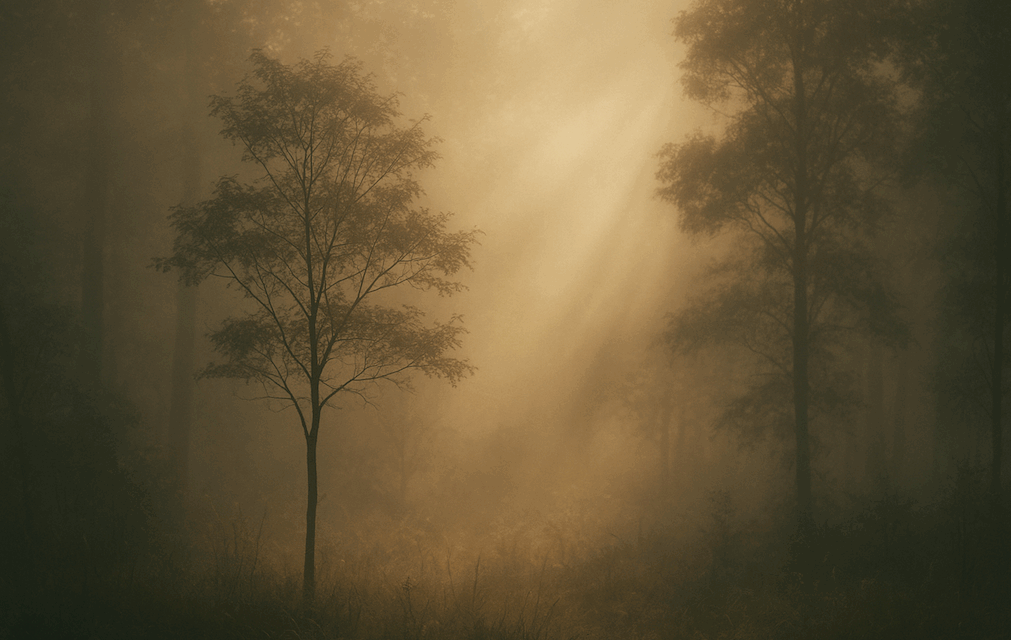
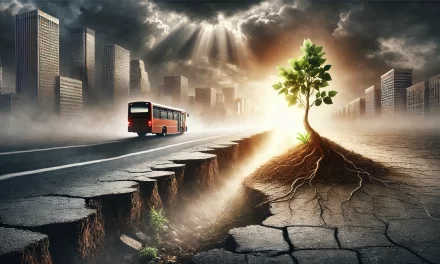
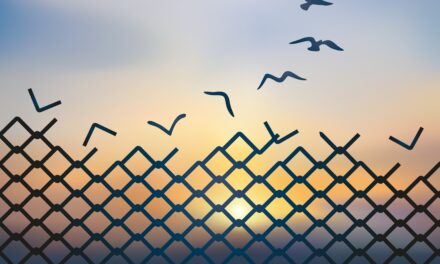
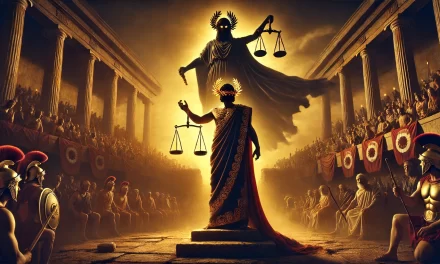
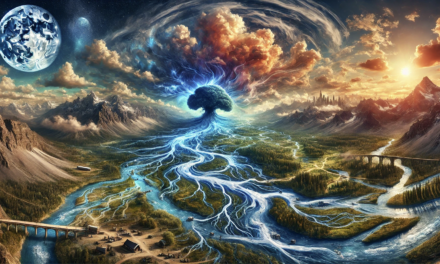

Here’s a summary of the article “The Voice Struggling to Be Heard” by Dr Terry Cooke‑Davies:
—
Key points
The author speaks from a long career and wide-ranging interests (organisational management, complexity science, spirituality) to warn of a fundamental ontological error in our civilisation’s worldview: treating reality as composed of separate things instead of dynamic processes and relationships.
He argues that although the “separatist” worldview produced many achievements (science, technology, prosperity) it is now causing harm: ecological collapse, social alienation, democratic decay, mental-health crisis, inequality.
The alternative: a paradigm of entanglement, emergence, relationship — seeing reality as process, organisms as interdependent, systems as open, and humans as relational rather than isolated.
The author emphasises that this is not a call to romantic primitivism or rejection of science/technology, but a revision of the foundational assumptions — a way to integrate the gifts of modernity with deeper wisdom.
He invites readers to pause, to listen to what is already present (in their body, in nature, in relations) and recognise that the “voice struggling to be heard” is not just his but a whisper of reality itself trying to show us a better way.
He describes how three major “currents” in civilisation — Knowledge, Power, Meaning — currently flow toward separation; but they could instead flow toward entanglement (knowledge as participatory, power enhancing system-flourishing, meaning within relationships).
Finally, he offers a kind of invitation and practice: to choose life by defending what serves life (scientific method, democracy, technology), revising what harms life (individualism, extraction, meaninglessness), expanding what enables life (regenerative economics, relational governance, contemplative activism).
In closing, the article says the future is not predetermined, the old story (separation, control) is dying, and the new story (connection, emergence) is being born — we live in the threshold between them.
—
Why it matters
The idea that the root problems of our world — climate change, inequality, social fragmentation — share a common foundation in a flawed worldview helps to connect what often appear as separate issues.
By framing the alternative as emergent and relational rather than just a policy fix, it points toward deeper cultural, philosophical, and existential shifts, not just technical solutions.
The article is valuable because it draws from science (complexity theory, quantum physics), philosophy (process philosophy, Daoism), and spirituality, offering a broad integrative perspective.
—
Some caveats / nuances
The author acknowledges his voice is “partial” — that his perspective is shaped by his background (privileged, Western, academic) and that many other traditions (Afro-Indigenous, Global South, feminist epistemologies) also point toward similar truths.
He does not claim the new paradigm is perfect or already fully established — the shift is messy, paradoxical, filled with loss, grief, and contradiction.
The shift he proposes is more “way of being” than a prescriptive program. It invites individual and collective practice, not just policy change.
—
If you like, I can pull out 10 key quotes from the article that capture its essence. Would you like me to do that?